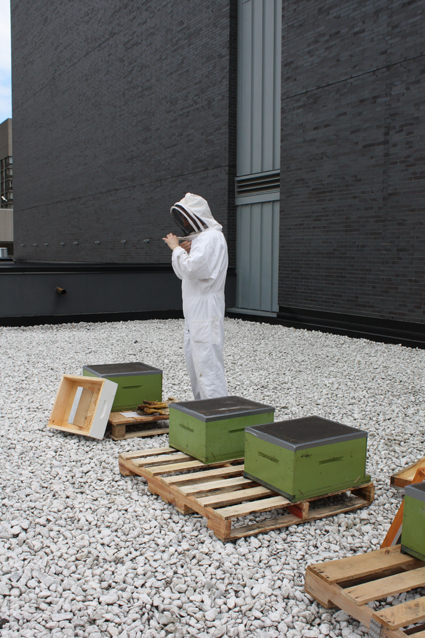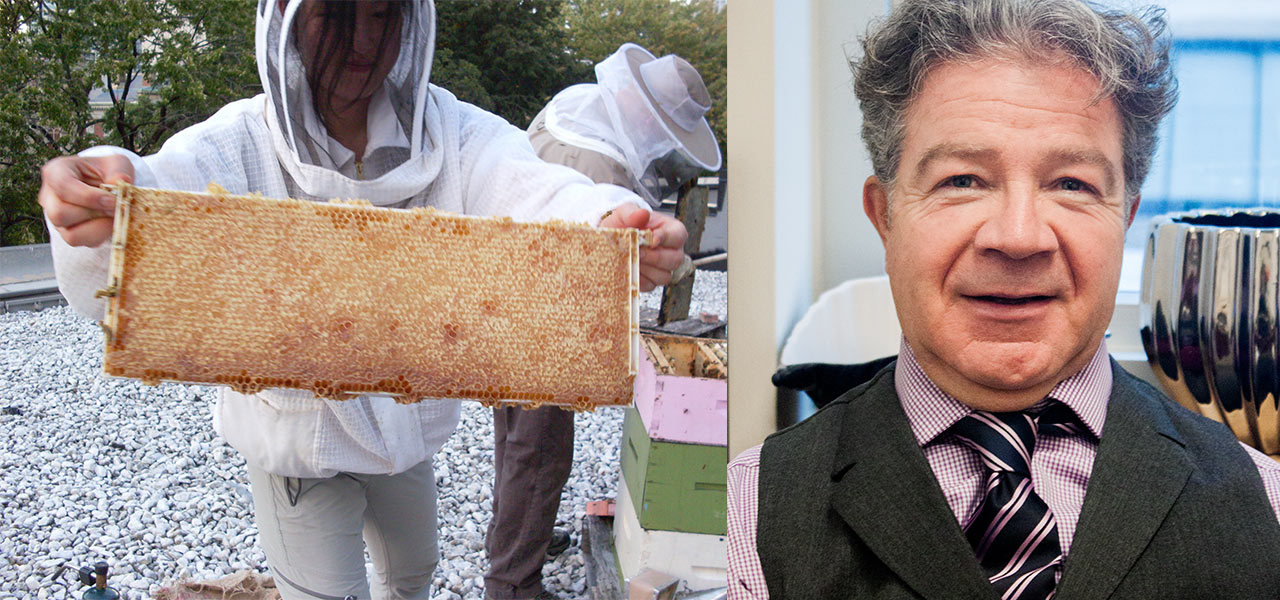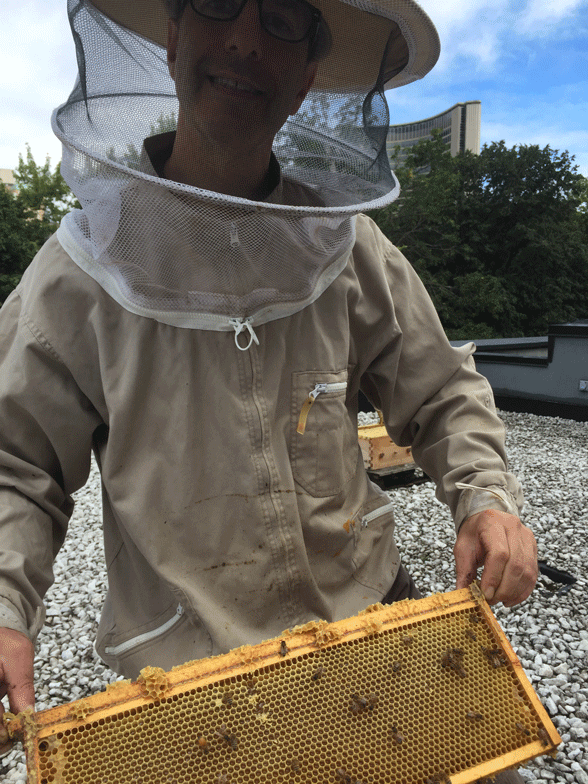The Four Seasons Centre is a big operation. That’s what my background is in, big operations like restaurants, hotels, golf courses. I was part of the opening team at Roy Thomson Hall, and was executive director of the CN Tower for five years. Whenever I’ve taken on a project, the goals and ethos of the organization have been my most important consideration. I have to believe in and stand up for the quality of the brand. So I joined the Four Seasons Centre for the Performing Arts about a year before we opened the opera house—opening a new building, and returning to the live performance sector was a very exciting opportunity for me. The Four Seasons Centre is a beautiful building, and working for the COC is wonderful – in arts organizations, you really get to be creative and think outside the box.
A couple of years after the opera house opened, an opportunity to do just this arose. I was on holiday on the East Coast, and happened to read two books about bees, and how rapidly the bee population was declining. A week after I returned, I got a call from a man named Fred Davis who worked in a tower close to the Four Seasons Centre. Mr. Davis told me his day-job was as an accountant at one of the financial institutions nearby, but his hobby and passion happened to be beekeeping. He had been looking down at our roof and thinking it would be a great place for beehives. I was struck by the coincidence and the timing. After approval from the COC’s director at the time, we began a modest bee project.
I knew bees can make some people nervous, so we kept it quiet for several months. We also had to have a representative from the Department of Agriculture come and ensure the bees would be safe in downtown Toronto – that there were places for them to pollinate, and that they had a viable flight path to those areas and that they could get back safely to the hives. Our bees pollinate on the medians of University Avenue and in Osgoode Hall across Queen Street, but they also sometimes fly as far as Toronto Island.
We started with about five hives; this summer, we’re starting with ten, and we’re expecting them any day now. (The roof of the Four Seasons Centre can get quite cold, so they spend the winter offsite at a beekeeping farm.) By the end of a summer, our hives can house several hundred thousand bees. We’ve done some things to make the roof more hospitable, like adding a fountain so the bees have a source of humidity and water if they need it. We also have a beekeeper who comes to visit once or twice a month to take care of the bees, check for any issues, and gather the honey.
That beekeeper is Fred Davis – the very same accountant who came to me with the original idea!
I can’t say we had unanimous support right at the beginning; some people thought I was crazy. Others worried bees would come into the opera house through the ventilation system – but of course, that isn’t possible, and we would never do something at the building that could be unsafe in that way. We work hard to make maintain the highest standard of safety for everybody who comes into the Four Seasons Centre, and that all our artists and creative personnel can perform to the best of their abilities in an optimal environment. Over the years, the bees have acquired many fans. We sell some of their honey at the bar during performances, and have used the honey to create throat lozenges as well. It also makes a unique gift for visiting performers and artists – it’s a bit easier for them to put in their suitcases than flowers! It also gives us an opportunity to educate people on how important a healthy bee population is to our ecosystem.
The opera house has a lot of soul: there is magic in the building and in the opera company, and a serenity that is extraordinary, even when there are thousands of people inside. I miss the magic of the interaction between the art on the stage and the audience, it's incredibly powerful to witness how both come together and I know I’m truly looking forward to the day when we can gather again at the opera house.

Until we can welcome audiences back, we have the bees to keep watch over things. The hives add their special energy to this building, that’s for sure. Meanwhile, over the next few weeks and months, we are going to continue doing everything humanly possible to ensure that this building is as safe as any building would be to come back to. Once we get back to live performance, we will have taken every precaution possible. This is not a small house – it's close to 550,000 square feet. But everybody here takes extraordinary care in their work: for the bees, for the building, for the performers, and for the audiences.
The best thing about this opera company is the care that people have for each other and it will be good to be back and share that with all of you.
Photos courtesy of Fred Davis



